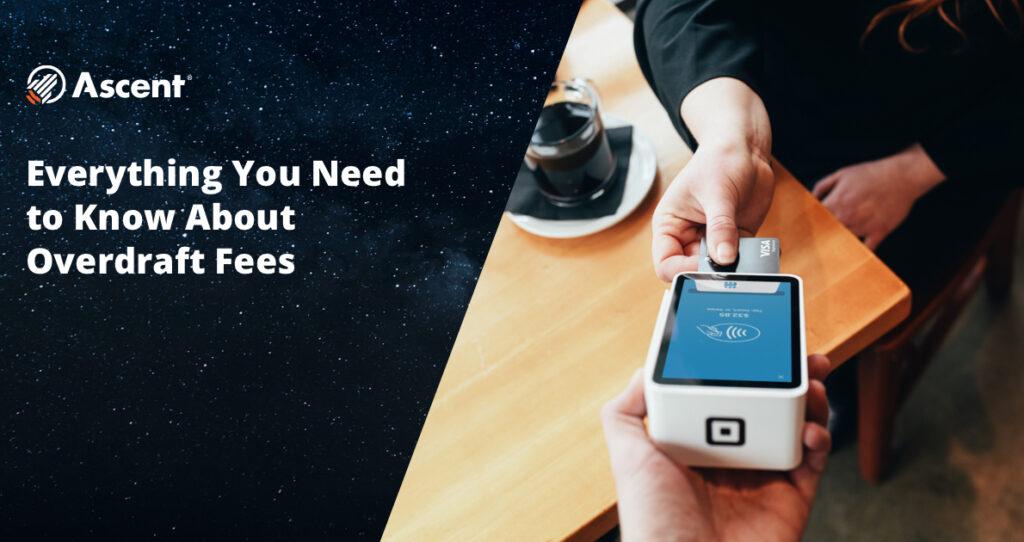How to Avoid Overdraft Fees: 5 Tips for Students
Categories: Blog, For College Students, For High School Students, For Students

As if school isn’t expensive enough, the financial term that strikes terror into the heart of any student is overdraft fees. According to a Bankrate survey, the cost of overdrawing your checking account hit a new record high in 2020, increasing to an average of $33.47. Yikes.
Before we give you the scoop on how to manage your bank account, let’s get clear on what exactly an overdraft fee is and how it works.

What is an overdraft fee?
Overdraft fees are charged when you don’t have enough money in your account to cover a payment or purchase you’ve made. As part of an overdraft protection service, the bank – or credit union – covers the difference for you.
Did You Know: Overdraft fees vary depending on your bank. For example, if you have Bank of America or Wells Fargo, your overdraft fee may be $35, but if you have Ally Bank, your overdraft fee may only be $25. If you have multiple debit and credit cards, make sure you understand the overdraft fees at each bank.
If you find yourself in a situation where you’ve inadvertently overdrawn your account, don’t stress. Here are some steps you can take to solve the situation and help prevent it from happening in the future.
1. Monitor your account balance regularly.
According to the Consumer Financial Protection Bureau (CFPB) in 2014, most overdraft fees from debit cards tend to happen with transactions of $24 or less. To make sure your balances aren’t too low, try checking your account weekly or even more frequently. How do you do that? Sign up for online banking! Through an app or on your computer, online banking allows you to monitor your checking and savings accounts closely.
Once you’ve gotten into the groove of checking your balance, you can start to track your expenses. You can monitor your purchases by checking online often or by keeping a list of all your deposits and withdrawals. This will help you to maintain a running account balance.
2. Set up balance alerts.
Find out whether your bank or credit union lets you set up alerts that notify you when your account goes below a certain amount or when you make a big purchase. While you’re there, it’s also a good idea to sign up for daily account balance reminders, so you’re never in the dark about how much you have.
3. Deposit or transfer money ASAP after an overdraft occurs.
With the average $33 overdraft fee, just three purchases can equal almost $100 in fees. When you know that a low balance plus a new charge just triggered an overdraft, you might still be able to prevent the fee. Check if your bank has a daily cutoff time, or deadline, for adding money to an account to correct a negative balance the same day. In a situation like this, the new alerts you set up will come in handy.
Even if you miss the cutoff, transferring money into your account can help to prevent future fees. If you really want to make sure you are in the clear with an overdraft fee, take the extra step of calling to let the customer service at your bank know you’ve transferred the money and made the payment. Leaving your balance negative for multiple days can lead to an extended overdraft fee, and nobody wants that.
4. Opt-out of overdraft protection.
Overdraft “protection” can seem like a bit of a misnomer. Essentially, the “protection” is the assurance that if you pay for something, your purchase will go through even if the money isn’t there. However, no one is actually protecting you from the overdraft fees.
According to NerdWallet’s personal finance columnist Liz Weston, “you could buy a $5 sandwich and wind up with a $35 fee for it.” Opting out of overdraft protection coverage means that your debit card will decline if you try to buy something your balance can’t cover. A temporary moment of embarrassment in the checkout line is worth more than the high fee as an alternative.
5. Link to another bank account.
Some banks allow you to link your checking account to a savings or credit account that helps you cover transactions if you don’t have enough money in your account. Keep in mind, there is usually a transfer fee, but odds are it will wind up being cheaper than overdraft coverage fees. Lastly, be mindful of linking a credit account, like a credit card, since you’ll have to pay interest on the overdrawn amount.
Being proactive by tracking your expenses, understanding your bank’s overdraft policy, and learning how to manage your money not only helps prevent overdraft fees but will take you one step closer to mastering your finances.


